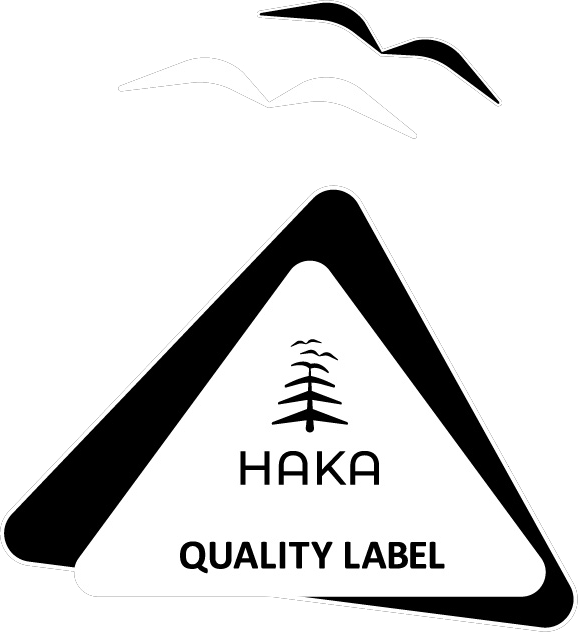 All news
All news

Smart Machines and Systems at the Service of Mankind: Panel Discussion - “Between the technology and mankind: perspectives of education, industry, society”
The panel, which included Andrus Pedai, Timo Seppälä, Eduard Maron and Andri Haran, pondered over the following topic: “Between the technology and mankind: perspectives of education, industry, society”.
First question posed was what universities should do to adapt to the fast-changing reality. Mr Pedai commented that it can be seen how the past that has brought us here cannot take us much further. We must learn from the past and the future to really adapt to the changes, the expectations of the future labour market, and the expectations of new students. He also added that this is why most of EUAS teachers are professionals working outside in their respective fields - they can provide the students with the latest information, so that the student could put this into practice as soon as possible. Mr Seppälä added that he allows all his students to use all the technological tools that could benefit their work. Mr Haran, representing the industry side, added that since companies and technologies are developing much faster than universities, the students who graduate are not yet ready for the real work. He also added that students in the future must have higher knowledge than they do now, since what they know now, AI can start doing soon.
Moving on from here, a question was posed to Mr Maron regarding how we could use AI to diagnose people who might be needing a diagnosis because of stress and depression caused by the fear of losing one’s job to an AI. Mr Maron replied that the fear of AI exists. And that he believes that AI could be a powerful support to professionals in the future, yet he is sceptical regarding many people losing their jobs as there are factors like morals and ethics that only humans know how to consider when making decisions.
Next question was directed to Mr Haran and asked what kind of next wave of innovation he is looking forward to most. Mr Haran replied that he would like to see innovation in the industry itself. Meaning that there is a need for more engineers and specialists who could take the products and services to a new level, with the help of AI. Delving further from there, Mr Pedai was asked about which professions he thinks we should be focusing on teaching to prepare students for the future labour market. He replied that problem solving skills and handling data-driven environments seems to be a trend. While the university cannot fully prepare the student to conduct a specific task, what it can do is to teach them different disciplines and how to successfully approach a new programme, find correct tools from the set given, settle and fix the issue. It is also very important to have the skill to re-skill quickly as the time span for using only one skill successfully is getting shorter and shorter.
Taking a step back towards health-related topics, Mr Maron was asked what the risks are in using AI to diagnose mental health patients. Mr Maron replied that AI is certainly not yet at a point where it could be fully implemented in diagnosis. There have been situations where, for example, chatbots made grave mistakes. However, AI can surely be used in collecting data and setting up initial communication with patients.
A question regarding how AI could change the leadership or management or companies, was directed to Mr Seppälä. He replied that it is highly likely that the organisational structures will be flattened. We might be going back to structures we had in late 1990-s and early 2000s where there were no matrix-type organisations in our corporations. Mr Haran added that the changes also depend on the working culture of different companies. There will be more responsibility and less leadership, people will have to start making decisions without constant supervision. These responses led to a question regarding how this would affect people’s mental health. Mr Maron replied that it would have an impact and people would need to strengthen their mind and learn to be stronger in that sense.
Another interesting question was whether the EU AI Act is helping or will it make development more difficult. Mr Haran said that in general it is the right thing to do, however there is a likelihood of overregulating which would leave the specialists very little room to do their jobs. Mr Pedai also added that the business side of the issue would need to be focused on more. There are reasons why top technology companies are not from Europe. Mr Seppälä added that legislation could be technology-neutral and agreed that the EU is lagging behind other regions in implementing AI due to often adding new legislation.
Coming from rules and regulations, another very important question was posed regarding whether we take cyber security seriously enough or not. Mr Pedai stated that in EUAS there is a specialist working to stay on top of such matters to ensure the data is kept confidential and security is not breached. Mr Haran added that from the industry side there’s another side to cyber threats - the disruption of machines working or closing a factory down entirely. Luckily more and more companies are aware of such threats and taking measures against them. In Finland, companies have also started to consider this topic with more urgency. However, it seems that companies in general have not started categorising data and deciding after that which ways are most secure to store different types of data. Not all data should go to a cloud or be connected to the internet.
To close the panel discussion, Mr Haran suggested that we ought to be more ambitious and not fear technology. Mr Seppälä added that while AI is a great tool, we should remember that it is still just one tool in a toolbox of thousands of technologies. Mr Pedai added his final message from the stage and said that it’s one of his dreams to have Estonia’s first quantum computer to be set up in Ülemiste City to support the business community there. You can find full discussion on our Youtube channel. More information at conference homepage.

 Student
Student

